6 Nights / 7 Days
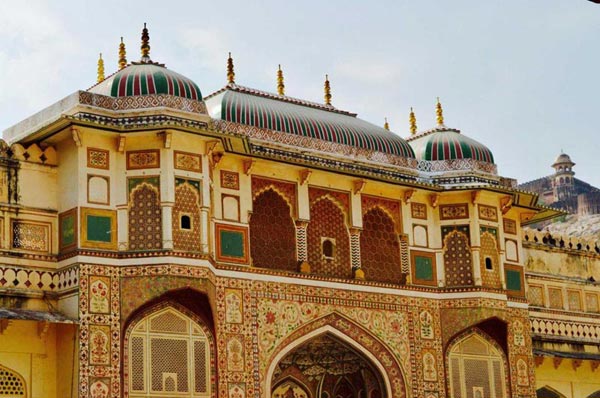
Jagdish Temple -
Jagdish temple is a 400 year old Lord Krishna Temple with impressive architecture. It is situated right in middle of Udaipur old city and a popular visit for all guests arriving here.
Mansapurna Karni Mata Ropeway -
Mansapurna Karni Mata Ropeway is a popular ride up the hill to the Karni Mata temple and enroute offers views of the area around. It can get crowded during season.
Vintage Car Museum -
Vintage Car Museum has number of vintage classic cars on display from Royal family garages. Cars are maintained well and therefore a popular tourist visit place.
Shilpgram -
Shilpgram is 3 kms west of Udaipur and is a Rural Arts and Crafts Complex spread over 70 acressurrounded by hills. the Rural Arts and Crafts Complex that depicts lifestyles the rural folk. Shilpdarshan is where performing artists and craftsmen are used to draw from the interior villages of the member states. They are regularly invited to exhibit their skill and to demonstrate their crafts, and sell their masterpieces in order to have direct access to the buyers.
Bagore Ki Haveli -
Bagore Ki Haveli offers a cultural show by the Lake Pichola between 7 and 8 PM that is recommended for all travellers to the area for a bit of experience and a bit of photo opportunity of capturing the area in the evening.
City Palace -
City Palace is a very popular sightseeing area offering multiple galleries, rooms and antiques on display. Guests looking at deeper insights must opt for a guide.
Lake Pichola -
Pichola Lake is one of the most beautiful and picturesque lakes of Rajasthan, India. It is located in the heart of the city around which City Palace, Shivniwas and Fateh Prakash palace are situated. Pichola is also renowned for having the Lake Palace, the famous heritage hotel in the centre of the lake. Boating here is nothing short of experience.
Sajjan Garh -
Its a 9 km excursion up a hill where excellent views of the countryside, udaipur city and its lakes can be captured. Excellent option for an evening visit. The area also doubles up as an option for local picnickers. The reserve forest area is home to wildlife and is demarcated as Sajjangarh Wildlife Sanctuary.
Eklingji Temples -
Eklingji Temple (25 kms from Udaipur) is dedicated to Lord Ekling (Shiva) and was founded by Acharya Viswaroopa contemporary of Adi Sankaracharya. There is another temple called Nathon Ka Mandir in the temple complex with inscriptions dating back to the 10th century CE. There are two more temples are that are visited in Eklingji Sas Bahu Temple - built in the 10th century; this temple is dedicated to the mother-in-law and daughter-in-law and has intricate carvings including some erotic figures. Adbudji Jain temple is a temple in ruins dating back to the 17th century and houses a black marble statue of Shanti Nath.
Haldighati Museum -
The Haldighati Museum (50 kms from Udaipur) opened up in its current avataar in 2003. It depics story of Maharana Pratap and his battles with the Mughal.
Ranakpur Jain Temple -
Ranakpur is renowned for Jain Temple Complex. This is white marble temple with 1444 pillars and intricate carving. Three Jain Temples to Rishabhadeva, Neminath and Parsvanath, and the dharamshalas, stand close to each other in a walled enclosure. It is one of the "Luncheon" sectors of Rajasthan where guests on the Udaipur-Jodhpur Route stop over for lunch and marvel at the Ranakpur temple Complex.
Taragarh Fort-
Constructed in the year 1354, the Taragarh Fort is one of the greatest forts in Bundi. It is also known as Star Fort. Positioned on a steep hill, the Taragarh Fort also offers a breathtaking view of the Kota. It looks best during the sunset as the city gets drenched in the fading light of the Sun. However, the main attraction for the tourists is the fort itself. As you enter the Taragarh Fort, the giant gateway will provide you a grand welcome. There are three gateways to enter the court and each of them has a distinct name. The different names are Lakshmi Pol, Phuta Darwaza and Gagudi ki Phatak. The detailed carvings of elephants on the gate will give you an idea about what's in store inside. Though time have had its effect on the various features of the fort yet these features exhibit the grandeur of Rajput rule.
Bundi Palace-
Located adjacent to the Taragarh Fort, the Bundi Palace is the perfect example to showcase the craftsmanship of the place. The main attraction of the Bundi Palace is the traditional murals. These murals get you an idea about the tradition of the place. The murals reflect the Bundi royalty and cover almost the whole palace.The Chitrasala segment of he Bundi Palace is only open for public viewing. Bundi Palace also features a number of other attractions. There is also an art gallery in the Chitrasala segment. The particular gallery exhibits a lot of miniature colorful murals. These murals bear a special significance as they depict pictures of Raaslila and Ragmala- the story of Radha and Krishna.
Nawal Sagar Lake-
Set in the heart of the town, Nawal Sagar Lake is a major tourist attraction of Bundi. The lake is all around surrounded by different baoris. This artificial lake has a famous temple at the center. The temple is dedicated to Lord Varuna and it holds immense religious significance. People from all over visit the temple to seek the blessings of Lord Varuna.The star attraction of the lake is the mirror image of the entire city which it offers on its serene water. As the reflection of the Bundi falls on the waters of the lake, the view is unmatched. Tourists from all over visit Bundi to witness this beautiful phenomenon.
Dabhai Kund-
Located in the middle of the city, The Dabhai Kund acts like a window into the magnificent past of the place. The historical significance of Dabhai Kund adds to the attraction of the structure. It reminds tourists of the valiant king Prithviraj Chauhan who was defeated by Mohammad Ghori in a battle. The kund is a reminiscent of the former glory of the place and is a great historical structure that portrays the glorious past. Hence, tourists visiting this place have a great experience as they not only get to witness the marvelous work of art and architecture of the region but also get a clear picture of the historical significance of the place.Also known as Jai Kund, the Dabhai kund in Rajasthan is a great structure. In fact, it is the largest Kund in Bundi. The largest Kund in Bundi boasts a historical significance that can hardly be ignored. However, even if you are not an ardent history lover then also you will be mesmerized by the various exhibits of the Kund. The magnificent carvings on the staircases will be a treat to the eye. This staircase will lead you to the water level below.
Main Bazaar-
Main Bazaar is known for its magnificent collection of different types of mementos. This bazaar is often dubbed as shopping paradise in Budni. Bundi attraction tour must include a visit to Main Bazaar.The most popular products sold in the shops of Main Bazaar are cloth carpets, paintings mainly miniature paintings, artifacts and numerous types of handicrafts. The cloth carpets come in attractive decoration. The intricate detailing of the carpets makes them one of the best buys from Bundi main market.The miniature paintings which are widely popular in this shopping bazaar in Bundi have earned a world-wide recognition. Among the other items that are showcased in this bazaar, wooden toys, lac bangles, colorful odhnis, Kota sarees and stone statues are the most popular ones.
Ratan Daulat-
Ratan Daulat is a popular tourist attraction of Bundi, Rajasthan. The monument stands as a symbol of the bravery, loyalty and great achievements of the Rajput Rulers. Ratan Daulat was built by Raja Rao Ratan Singh, who was one of the most noble and bravest Rajput Kings. The structure provides a lot of information related to the bygone era. The monument is uniquely designed, which speaks of the innovation involved in its construction and designing. All the coaches in the stable are beautifully designed and feature intricate carvings. Hatia Pol is also an important attraction of Ratan Daulat.
Raniji ki Baori-
Also known as Queen’s Stepwell, Raniji ki Baori is one of the most popular attractions of Bundi town. This famous stepwell was constructed way back in the year 1699 and was commissioned by Rani Nathavati Ji, one of the queens of the then ruler of Bundi, Rao Raja Anirudh Singh. This baori is a well with steps and is 46 meters deep. It has a towering narrow entrance and its pillars are adorned with delicate carvings. A multi-floored arrangement with nice sculptures and terraces, it also has places for worshiping on every storey. The narrow entryway of the stepwell stands on 4 pillars and has a stone elephant statue on each of its corner. The archways of Raniji ki Baori are adorned with ogee brackets. Baoris (Baolis) or stepwells were an important construction done during medieval times in Bundi and Raniji ki Baori is one of the most important and probably the largest one of all the other constructed here.
Jait Sagar Lake-
Around 2 km from the town, lying adjacent to Taragarh hill, the picturesque Jait Sagar Lake is one of the most popular tourist attractions in Bundi. This 1.5 km long lake is encircled by hills and is sprinkled with lotus during monsoon and winter months. A visit to this lake is one of the most popular excursions from Bundi and is easily accessible through city’s local transport. Placed amidst a serene natural setting of mountains, the lake was commissioned by Jaita Meena. The surroundings of the lake are extremely soothing and peaceful. There is a fountain too near the lake, which looks extremely enchanting at night. The lake is also quite popular as a picnic spot amongst locals as well as tourists.Jait Sagar Lake has Sukh Mahal on one of its banks. This is a small summer palace with beautiful terraced gardens where Rudyard Kipling stayed when he was writing his novel Kim.
Chaurasi Khambon Ki Chhatri-
Chaurasi Khambon ki Chhatri or 84-pillared cenotaph is one of the most popular tourist attractions in Bundi. As the name suggests, the cenotaph has strong pillars, which are 84 in number. Placed southwards of Bundi, this impressive structure was commissioned in the year 1740 by Rao Anirudh Singh, a Rajput ruler of Bundi. He constructed his magnificent cenotaph to pay honor to Deva, his wet nurse, who take special care of the prince was he was a kid. Rao Anirudh was very attached to Deva and loved her dearly. This splendid cenotaph is lavishly decorated with carvings of deer, elephants, dancers and apsaras.The two-storyed structure of Chaurasi Khambon ki Chhatri at Bundi stands on a platform and is visited by a decent number of tourists every year. The interiors of the Chhatri are beautifully designed and festooned with elaborate stylish patterns.
HAWA MAHAL -
built in 1799, by Maharaja Sawai Pratap Singh, is the most recognizable monument of Jaipur. The 5 storied stunning semi-octagonal monument having 152 windows with over hanging latticed balconies is a fine piece of Rajput architecture. Originally designed for the royal ladies to watch and enjoy the processions and other activities, on the street below. Now it houses a well laid out museum. The display “Jaipur past and present” is the special feature of this newly setup museum.
JANTAR MANTAR (Observatory)-
built in 18th century by Maharaja Sawai Jai Singh II, the huge masonary instruments were used to study the movement of constellations and stars in the sky. Enormous sun-dial still provide accurate time, which are subject to daily corrections.
CITY PALACE AND S.M.S. II MUSEUM -
situated in the heart of the old City, it occupies about one seventh of the old city area. The palace is a blend of Rajput and Mughal architecture, it houses a Seven storeyed Chandra Mahal in the centre, which affords a fine view of the gardens and the city. Diwan-E-Am (Hall of public audience) has intricate decorations and collection of manuscripts, Diwan-E-Khas (Hall of private audience) has a marble pawed gallery Mubarak Mahal has a rich collection of costumes and textiles. There is a Clock Tower near Mubarak Mahal. Sileh Khana has a collection of armory and weapons.
ISHWAR LAT -
‘Swarg Suli’ or ‘heaven piercing minaret’, the tower, near Tripolia gate, built by Maharaja Ishwari Singh (1744-51). It offers one of the most breathtaking view of the city.
CENTRAL MUSEUM -
situated in the Ram Niwas Garden. This graceful building was founded in 1876 by Prince Albert (also known as Albert Hall). It has a rare collection of archaeological and handicraft pieces.
DOLLS MUSEUM -
a collection of beautiful dolls from all over the world, it is situated on Jawahar Lal Nehru Marg.
BIRLA PLANETARIUM -
It offers unique audio-visual education about stars and entertainment with its modern computerised projection system.
JALMAHAL - (6 kms)
on the way to Amer, this small palace is set in the middle of Man Sagar Lake. Renovation around the lake is in progress.
GAITOR - (6 kms)
At the foot hill of Nahargarh stands the memorials to the former rulers of Jaipur the place has some gracefully carved cenotaphs in white marble.
JAIGARH FORT - (15 kms.)
standing on a hilltop, overlooking the palaces and city of Amer. The world’s biggest cannon on wheels- the Jai Ban is positioned here, built during reign of Maharaja Sawai Jaisingh. It has a twenty feet long barrel and pumped in the cannon for a single shot.
NAHARGARH FORT - (15 kms.)
cresting a hill about 600 ft. above the city, the fort was built in 1734. The walls of the fort run along the ridge and within are architectural beauties like Hawa Mandir and Madhvendra Bhawan.
GALTA - (10 kms.)
This holy pilgrimage centre has a temple dedicated to the Sun God (Which is the only one of its kind in this part of the country) and natural spring. It crests the ridge over a picturesque gorge and provides an impressive view of the city. As the legend goes, sage Galav performed a difficult penance here.
MOTIDOONGARI -
perched on a hill top on the southern horizon. It is a replica of a Scottish castle.
LAXMI NARAYAN TEMPLE -
is situated just below the Moti 000ngri, known for the intricate marble carvings in white marble, popularly known as Birla Temple.
MAHARANI K! CHHATRI -
The funeral place for the royal ladies, marked by some wonderfully carved cenotaphs.
SISODIA RANI GARDEN -(5 kms.)
on the road to Agra, the magnificent palace garden was built by Maharaja Sawai Jai Singh II in 1710 for his queen.
VIDHYADHAR GARDEN -(5 kms.)
on the way to Agra, built by Viyadhar, the chief architect and town planner of Jaipur. This beautiful terraced garden has several galleries and pavilions decorated with exquisite murals, depicting Lord Krishna.
KANAK VRINDAVAN -(6.5 Kms on the way to Amer)
This newly restored temple and garden, near Jal Mahal, has beautiful gardens and is popular picnic place. This is also beautiful location for film shooting.
AMER-
The old capital of the Kachhwahas stands atop a range of craggy hills. The fort is remarkable as much for the majestic grandeur of its surroundings as for its sturdy battlements and beautiful palaces. It is a fine blend of Hindu and Muslim architecture. The solemn dignity of it red sandstone and white marble pavilions, when reflected in the lake at the foot hill, is a sight to behold. The original palace was built by Raja Man Singh, the additional extensions were built by Maharaja Mirja Raja Jai Singh and Sawai Jai Singh lIthe last Maharaja of Amer, who built a new city called Jaipur, where he shfted his capital in 1727.
Pushkar Lake-
Hindus from all across India consider Pushkar Lake to be one of the most sacred lakes of India. According to legend, the origin of this lake was the lotus flower petals that fell on earth from Lord Brahma’s hands. The lake is surrounded by 52 palaces, 400 temples, and 52 bathing ‘ghats’, which are a series of steps leading to the lake. Every year in November, pilgrims take a holy dip in this lake. It is believed that the water of the lake is capable of cleansing sins and curing skin diseases. A fair called Pushkar Fair is also held near this lake, every year.
Brahma Temple-
The Brahma Temple is the lone Hindu temple in India where Lord Brahma, the Creator of the World is worshipped. This major attraction of Pushkar is situated on the banks of the Pushkar Lake and is considered to have a special position in the Hindu Pantheons. Built in the 14th century, the temple comprises a raised platform, red spire, stone slabs, marble floors and an image of ‘hans’ or swan, Lord Brahma’s vehicle. A life-sized four-armed idol of Lord Brahma and a silver carved turtle is situated inside the temple. It is customary for pilgrims to stand on the steps and put coins to mark the deaths and births of their loved ones.
Savitri Temple-
Situated on the peak of the Ratnagiri Hill, the Savitri Temple is dedicated to Savitri, Lord Brahma’s consort. It was built in 1687 and pilgrims need to trek up the hill in order to reach the shrine of the temple. The temple houses the statue of Goddess Savitri and offers good views of the surroundings, including the sand dunes of nearby villages and of the Pushkar Lake. Legend has it that the presence of Savitri was required in a ‘yagna’ that was done by Lord Brahma but she kept Him waiting. Lord Brahma irritated with her behaviour, married a milkmaid named Gayatri. Savitri became furious at this and cursed Him that he will only be worshipped once a year and only in Pushkar.
varaha temple-
The Varaha Temple in Pushkar was built by King Anaji Chauhan in the 12th century and is dedicated to Varaha, Lord Vishnu’s incarnation in the form of a wild boar. The temple houses the idol of Lord Varaha that is white in colour and has a height of 2 feet. Various sculptures, elegant carvings, life-size statues of door men and gold-styled pillars depicting Garuda, the mythical bird are situated within the temple. The temple was destroyed by Emperor Aurangazeb but in 1727, it was reconstructed by Raja Sawai Jai Singh of Jaipur.
Man Mahal-
Originally built by Raja Man Singh of Amber, the Man Mahal presently serves as the tourist bungalow of the Rajasthan Tourism Development Corporation. It is located to the east of Sarovar and is considered one of the greatest palaces of Pushkar. It is built in the Rajasthani architectural style and depicts the features of the royal era. The palace also offers views of the surrounding temples and lake.
Naga Pahar-
The Naga Pahar or Hill stands as a divider between the city of Ajmer and the Pushkar Lake. According to a legend, the height of the hill will keep on decreasing over time and one day, the hill will completely disappear.Pilgrims often visit the cave on the hill that was once the residence of Agastya Muni and the Nag Kund that is believed to have been the home to Brahma’s son, Vatu, after being cursed by Rishi Chyavan for creating mischief.Government service tax
Lunch & dinner (as per plan)
Anything not mentioned under ‘Package Inclusions’
Air/Rail/Bus Fair (Book by us if you require)
All personal expenses, optional tours and extra meals
Camera fees, alcoholic/non-alcoholic beverages, mineral water and starters
Vehicle service on leisure days for sightseeing not included in the itinerary
Entrance fees at all monuments and museums & Guide charges
Medical and travel insurance
Tips, laundry and phone calls
Udaipur Arrival, overnight at Udaipur - Arrival at Udaipur Airport/ Railway Station and transfers to your hotel. After some Rest, In the evening, explore the countryside on wheels, feet or horse and take a breathtaking boat ride over the lake (at your own cost) admiring the perfect sunset view. Overnight stay at Udaipur.
Udaipur city tour - After breakfast, proceed for a city tour. Begin your tour with a visit to the Vintage collection of classic car museum-Belonging to the royal highness of Udaipur, the museum has cars which are almost 70 years old and all in working condition. Then Lake Pichola - Surrounded by hills, gardens, temples and havelis, Lake Pichola is one of the most beautiful lakes in India and a much sought-after tourist attraction in Udaipur. Then Karni Mata Temple through Rope Way. Then City Palace, built by Maharana Udai Singh, the City Palace is grandeur personified. A conglomeration of several buildings with towers, balconies and cupolas built all over, the City Palace also houses a crystal gallery, which boasts of royal artifacts and the world’s largest private collection of crystal. Then lovely Sahelion-ki-Bari (Queen’s resort for their friends) gardens. Then visit Bhartiya Lok kala Museum – a museum of folk and art that displays a rich collection of folk dresses, ornaments, puppets, masks and dolls. Then Visit Fateh Sagar Lake & Moti magari or the Pearl Hill is a beautiful hill from where you can enjoy the bird-eye view of the Fateh Sagar Lake.A light and sound show is organized in the evenings here.Overnight in Udaipur.
Udaipur to Bundi (270 kms/ 4 hr) - After breakfast, proceed for Bundi. Check in to hotel and after some rest proceed for a local city tour. Bundi is a heritage town thats best preserved and full of charming heritage monuments. Undertake a heritage walk to explore the dream city’s heritage character. Visit Monuments such as Sukh Mahal (Small palace), Maharao Raja Bahadur Singh Museum – Part of Moti Mahal full of stuffed wildlife, royal portraits and royal weapons on display, Chitrasala -18th century monument covered in beautiful paintings, Bundi Palace popular for Bundi Murals, Taragarh Fort with massive Bhim Burj and beautiful step wells, most popular being Raniji ki Baori. Overnight stay at Bundi.
Bundi – Ajmer / Pushkar Sightseeing (190 Km / 4 hrs) - After breakfast check out from hotel and drive to Ajmer. Visit Ajmer-e-Sharief Dargah, Adhai-Din-Ka Jhonpara, Ana Sagar Lake & drive to Pushkar (14 km). Later travel to Pushkar, check in to your hotel and after some rest, visit the temple of Lord Brahma, the only temple in India dedicated to Brahma. You might like to take a dip in the holy lake and visit few more temples around. Overnight stay at Pushkar.
Ajmer / Pushkar to Jaipur (150 kms/ 3 hrs) - Morning after breakfast, check out from hotel and drive to the Pink city Jaipur. Check in to your hotel and day free for leisure activities. You might like to choose from optional tours of Birla Temple or Chaukhi Dhani in the evening.
Jaipur city tour - After breakfast proceeds to visit city attractions covering Amber Fort. Enjoy Feel like a maharaja from the past as you ride up to Amber Fort on an elephant outfitted with traditional Indian draperies. Later visit Hawa Mahal, Jantar Mantar (observatory), City Palace & Museum. Overnight stay at hotel.
Jaipur drop at Airport / Railway Station - After breakfast, check out from hotel and transfers to Airport/ Railway Station with memories of Aravali tour & travels.
Advance Booking Fee
Advance Booking Fee
If you Cancel your Holiday -
Cancellation charges per person
If we change or cancel your holiday
If you want to change your holiday plan
If you have a complaint
We are Dealing in Tour & Travels Services Read More...
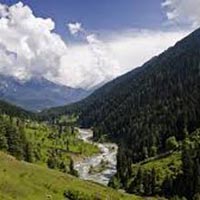 6D/5N
6D/5N
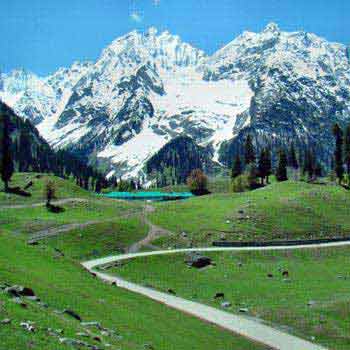 4D/3N
4D/3N
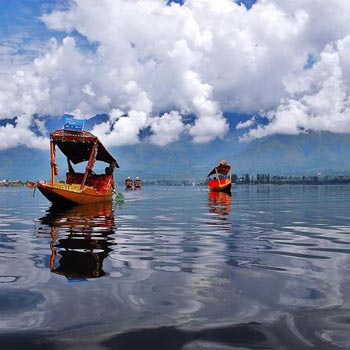 5D/4N
5D/4N
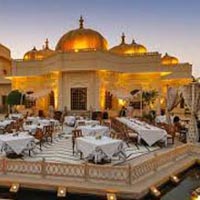 5D/4N
5D/4N
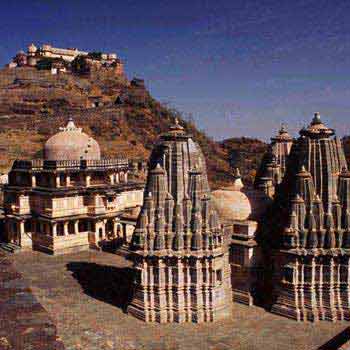 5D/4N
5D/4N
Udaipur - Kumbhalgarh - Chittorgarh Tour..
Kumbhalgarh - Chittorgarh - Udaipur
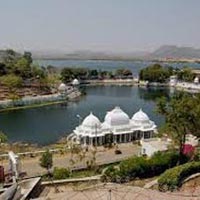 4D/3N
4D/3N
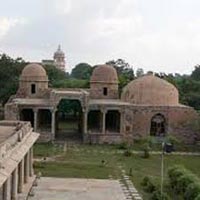 5D/4N
5D/4N
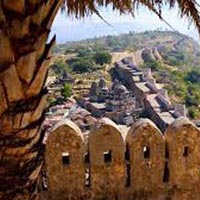 6D/5N
6D/5N
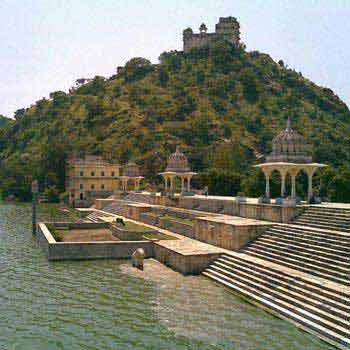 4D/3N
4D/3N
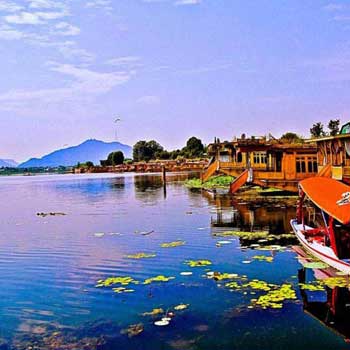 7D/6N
7D/6N
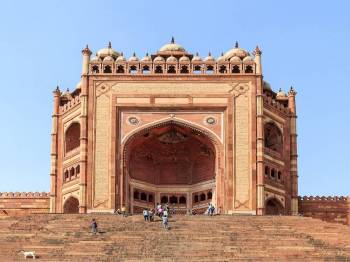 7D/6N
7D/6N
Amritsar Chandigarh Delhi Agra Family Pa..
New Delhi - Agra - Vrindavan - Mathura - Amritsar
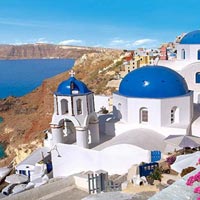 7D/6N
7D/6N
 7D/6N
7D/6N
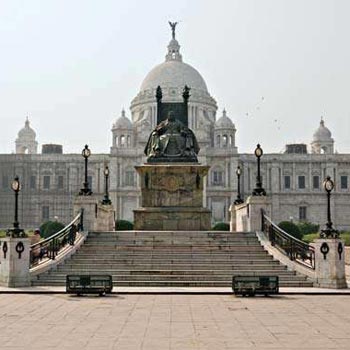 7D/6N
7D/6N
Golden Triangle - East India Tour
Kolkata - Puri - Imphal - Agartala - Dimapur
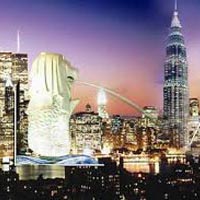 7D/6N
7D/6N
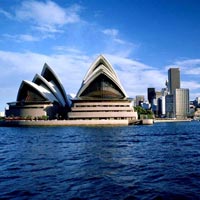 7D/6N
7D/6N
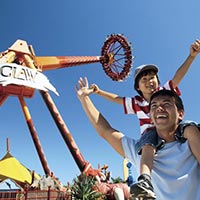 7D/6N
7D/6N
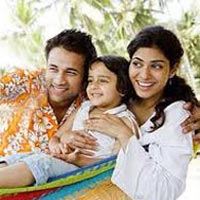 7D/6N
7D/6N
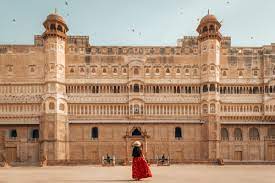 13D/12N
13D/12N
Rajasthan Tour Package 12 Night - 13 Days
Ajmer - Bikaner - Jaipur - Jaisalmer - Jodhpur - Mount Abu - Pushkar - Udaipur
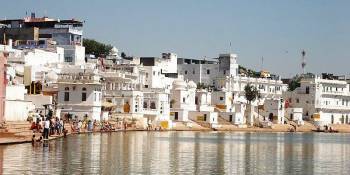 13D/12N
13D/12N
12 Nights Rajasthan Package From Jaipur
Ajmer - Bikaner - Jaipur - Jaisalmer - Jodhpur - Mount Abu - Pushkar - Udaipur
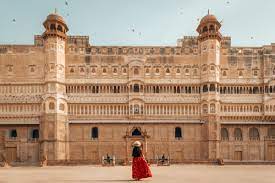 13D/12N
13D/12N
Rajasthan Tour Package 12 Night - 13 Days
Ajmer - Bikaner - Jaipur - Jaisalmer - Jodhpur - Mount Abu - Pushkar - Udaipur
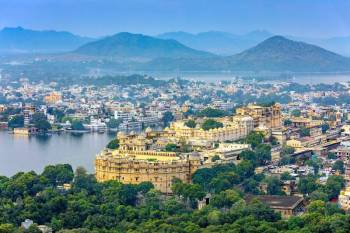 12D/11N
12D/11N
11 Nights 12 Days - Delhi Agra Rajasthan
New Delhi - Mathura - Agra - Jaipur - Ajmer - Pushkar - Udaipur - Mount Abu - Ranak..
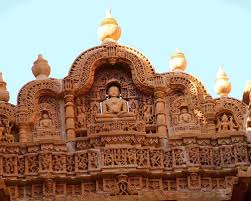 10D/9N
10D/9N
9 Night - 10 Days Rajasthan Tour Package
Ajmer - Jaipur - Jaisalmer - Jodhpur - Mount Abu - Udaipur
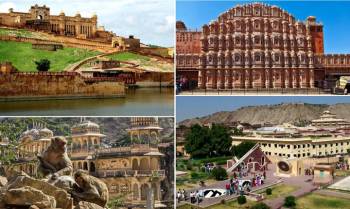 10D/9N
10D/9N
Ajmer - Udaipur - Mount Abu - Jodhpur - ..
Ajmer - Jaisalmer - Jodhpur - Mount Abu - Udaipur - Jaipur
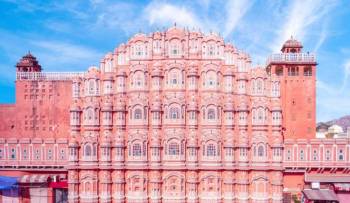 9D/8N
9D/8N
9 Days Jaipur - Ajmer - Udaipur - Mount ..
Ajmer - Jaipur - Jaisalmer - Jodhpur - Mount Abu - Udaipur
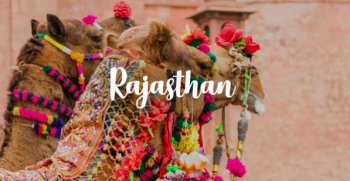 3D/2N
3D/2N
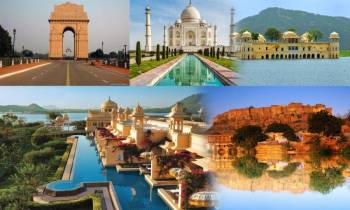 5D/4N
5D/4N